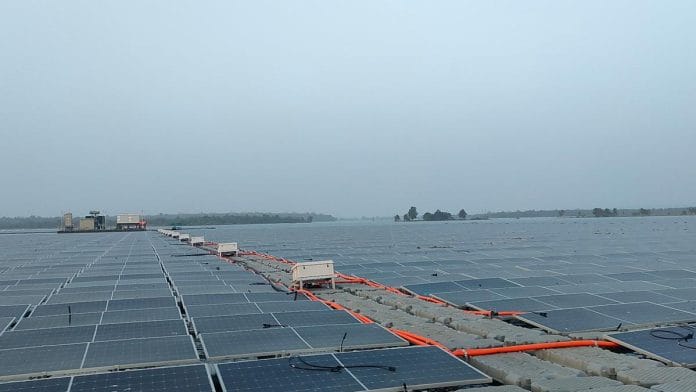New Delhi: Developing countries such as India need to assess the impacts of climate change from a “local lens” rather than follow the “one-size-fits-all” global climate change strategies pushed by the West, the Economic Survey 2023-24 has noted.
The economic survey, tabled before the Parliament by Finance Minister Nirmala Sitharaman Monday, just a day ahead of the Union Budget, pointed out that developing countries should be free to pave their own path towards tackling the climate crisis because they face unique challenges in balancing development with climate action.
“…The current global strategies for climate change are flawed and not universally applicable,” the survey read. “…adopting the practices of the West could prove to be disastrous for India where culture, economy, and societal norms are already intertwined with the environment,” it added.
While presenting India’s map to manage the climate crisis, the survey highlighted how climate change has disproportionately affected developing nations. For instance, the survey said, in 2022, the food price inflation in India was 3.8%, but it rose to 7.5% in 2024 due to extreme weather events.
The survey pointed out that despite making “significant strides in climate action”, India often faces criticism for not aligning with Western solutions. The survey attributed this criticism to a lack of appreciation for India’s unique social and cultural fabric, which is “already rich with sustainable development ideas”.
“It further goes on to point out inherent inconsistencies where the prescriptions to tackle climate change from the developed world do not hold ground globally,” the survey said.
Experts said the economic survey’s emphasis on growth and development-aligned climate actions indicates that incentives that boost domestic solar panel manufacturing and green hydrogen production may become the key pillars of the Union Budget’s climate announcements.
“While the economic survey emphasises energy efficiency practices under LiFE, it should also emphasise the criticality of technology efficiency and super-efficient appliances, which the budget could support through appropriate incentives and measures,” said Vaibhav Chaturvedi, a senior fellow with the Council on Energy, Environment and Water (CEEW).
India’s relationship with nature can help
The economic survey said India’s ethos emphasised a harmonious relationship with nature, contrasting with the culture of overconsumption, prevalent in the developed world.
Comparing traditional Indian practices with the Western approach, the survey said that meat production in most developed nations poses a credible food security risk and threatens to degrade land, water and natural resources, permanently.
“The reliance on human-edible crops to feed livestock has set into motion a ‘food-feed competition’ as less than half the cereals produced today go towards direct human consumption,” the survey said.
India relies mostly on green, dry or concentrated crop leftovers.
Also read: L-G Saxena directs use of Miyawaki forest technique, aquatic forests to increase Delhi’s green cover
Artificial Intelligence and emissions
“Even as developed nations prepare to impose a carbon tax at the border on imports coming into their countries, laden with carbon, they are ramping up energy demand like never before, thanks to their obsession with letting artificial intelligence (AI) guide, take over and dominate natural intelligence,” the survey read.
It added, “One of the leading global technology companies promised to achieve Net Zero by 2030 at the turn of the decade. But, the race to dominate the emerging technology of Artificial Intelligence has caused its emissions to be higher by 30 per cent by 2023.”
Citing a Goldman Sachs report, released in April, the survey said that the demand for power in the United States is predicted to witness unprecedented growth in the coming years because of AI.
“In India, demand-side management (DSM) interventions have helped utilise and reduce the peak electricity demands and defer high investments in generation, transmission, and distribution networks. Measures that enable efficiency gains can be an effective way to reduce demand,” the survey read.
(Edited by Madhurita Goswami)
Also read: Bootleggers, smugglers, and forest rangers—the hidden war in Delhi’s wildlife sanctuaries






